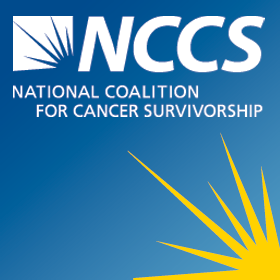Dependent coverage of children to age 26
Patient Protection and Affordable Care Act
The Honorable Kathleen Sebelius
Secretary
Department of Health and Human Services
200 Independence Avenue, SW
Washington, DC 20201
RE: OCIIO- 4150-IFC
Dear Secretary Sebelius:
The National Coalition for Cancer Survivorship (NCCS) appreciates this opportunity to comment on the interim final rules related to coverage of dependents to age 26. We commend the efforts of the Departments of Health and Human Services, Labor, and Treasury to develop implementing rules that will ensure that these insurance protections for young adults go into effect on September 23, 2010, without controversy or confusion. In addition, we applaud your efforts encouraging voluntary insurer compliance with the Patient Protection and Affordable Care Act dependent coverage provisions in advance of the implementation deadline.
Young adult cancer survivors are at risk of late and long-term effects of their cancer and cancer treatment, and at the time when they may be in greatest need of health care for these treatment side effects, they are also at significant exposure for having no health insurance. Research has concluded that as many as two-thirds of childhood cancer survivors will experience at least one late effect, with one-quarter experiencing a late effect that is severe or life-threatening. For these young adults, the extension of coverage through their parents’ health insurance is a critically important interim solution to their inability to obtain insurance.
In the regulations implementing the dependent coverage provisions, the departments have addressed the few issues in the statute that required clarification. We support the language in the regulations that would: 1) require the same benefits at the same price for similarly situated individuals, preventing young adult dependents from being offered inferior coverage, 2) mandate that employers and issuers inform young adults of their eligibility for coverage to age 26, 3) require a 30-day enrollment period, after notification of eligibility for continued coverage, 4) confirm that married adult children are eligible through their parents’ plans (while their spouses and children are not), 5) establish that residence with parents, student status, and inclusion as a dependent on parents’ tax returns are not issues that may be considered in determining a young adult’s eligibility for dependent insurance coverage, and 5) clarify that those who have lost coverage through their parents’ plans prior to enactment of the Affordable Care Act but are still under age 26 may be eligible for coverage.
We understand that the statute and implementing regulations do not require employers and insurers to offer dependent coverage. However, because the vast majority does offer such coverage, the extension of eligibility to age 26 will be a valuable benefit for cancer survivors. The projected cost of the provision, as measured by the impact on average family premiums, is limited. For those families that obtain their coverage in the individual market, the impact on premiums may be more significant. The statute does not address this issue or provide the opportunity for the departments to do so, and it is important to note that some may find the continuation of dependent coverage – especially if obtained through the individual market — to be prohibitively expensive.
NCCS supports the efforts of the Obama Administration to ensure the smooth implementation of the dependent coverage provisions beginning September 23, 2010. We also applaud the willingness of dozens of insurers to make such coverage available to thousands of young people in advance of the effective date.
Sincerely,
Thomas P. Sellers, MPA
President and CEO
National Coalition for Cancer Survivorship



